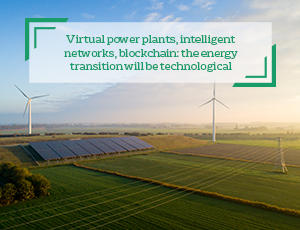Eight key figures from backgrounds as different as they are complementary: architect Jean-Michel Wilmotte, historian Boris Bove, demographer Hervé Le Bras, filmmaker Cédric Klapisch, mayor Célestine Ketcha-Courtès, ethnologist Anne Monjaret, artist Magda Danysz and industrialist Antoine Frérot, can be found in this book, linked by the city and its present, past and future worlds. The book links the perspectives of these 8 personalities about the world to come through their streets and points of view.
Recycling the city, anticipating its needs
Antoine Frérot believes cities should be resilient: less vulnerable to unforeseen events, less fragile, less exposed to adversity.

"Cities should be better equipped to deal with natural phenomena and economic setbacks such as a sharp fall in growth in a single area of activity. Cities should be more sober in terms of their use of water, energy and raw materials by using the same resource in different ways: for example, by recycling the energy discharged by the chimneys of every building. Cities also have to keep their urban promise (water, electricity, heating) for the most vulnerable groups of people."
In the city, "when a resource is recycled, it increases with the number of uses"
If the solutions developed by Veolia for water, energy and waste were all implemented, the impact of greenhouse gas emissions responsible for global warming would be 30% lower: firstly by energy efficiency in buildings and industry; then by recycling, for example plastics and metals: a recycled plastic bottle emits 70% less greenhouse gases than a virgin plastic bottle. And reusing or recycling waste transforms a polluting material into useful energy.
"In the future, cities will in part be responsible for water shortages. The solutions lie in combating waste and adapting technology to the shortage. Drip irrigation techniques for agriculture are already very effective. It will also be necessary to move towards recycling wastewater. If we collect all the water used for recycling, we will no longer pollute and the resource, which increases with use, will be available where it is needed. "
Adapt the "polluter pays" principle so that polluting costs more than cleaning up the environment
In some large cities in developing countries, infrastructure requires heavy investment and stable governance. Failing this, waste collection is often informal and carried out under unsafe and unhygienic conditions.
"With good governance, politicians set the guidelines for companies to follow. In fact, no polluter pays for their pollution without being forced to do so. When the Berlin Wall came down, the European Union made the entry of Eastern European countries conditional on a 30-year environmental protection target. And thanks to the polluter pays principle, there is now less water pollution: when pollution costs more than cleaning up, everyone starts cleaning up. And what has been done for water can be done for other types of pollution: air, waste and even carbon. Of course, it presupposes a proper collective organization, and when it comes to carbon, it can of course only be global, but the solutions already exist."
More:
And tomorrow, double or nothing for the environment?
Céline Ramstein, climate change specialist at the World Bank.
Olivier Brousse, Veolia Strategy and Innovation Director.
Dominique Bourg, philosopher, honorary professor Lausanne University.




